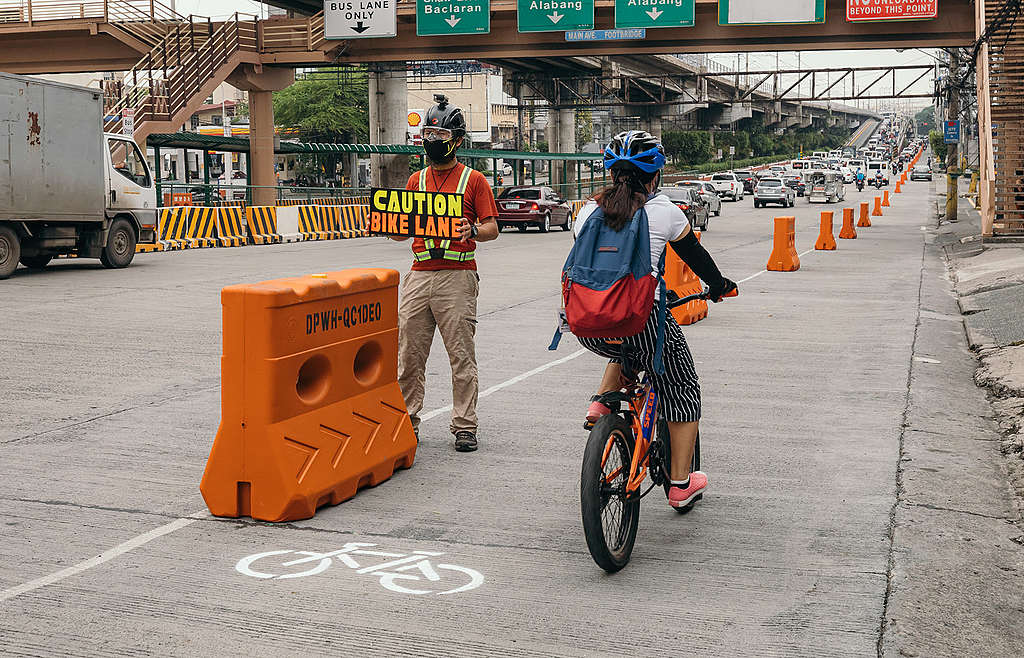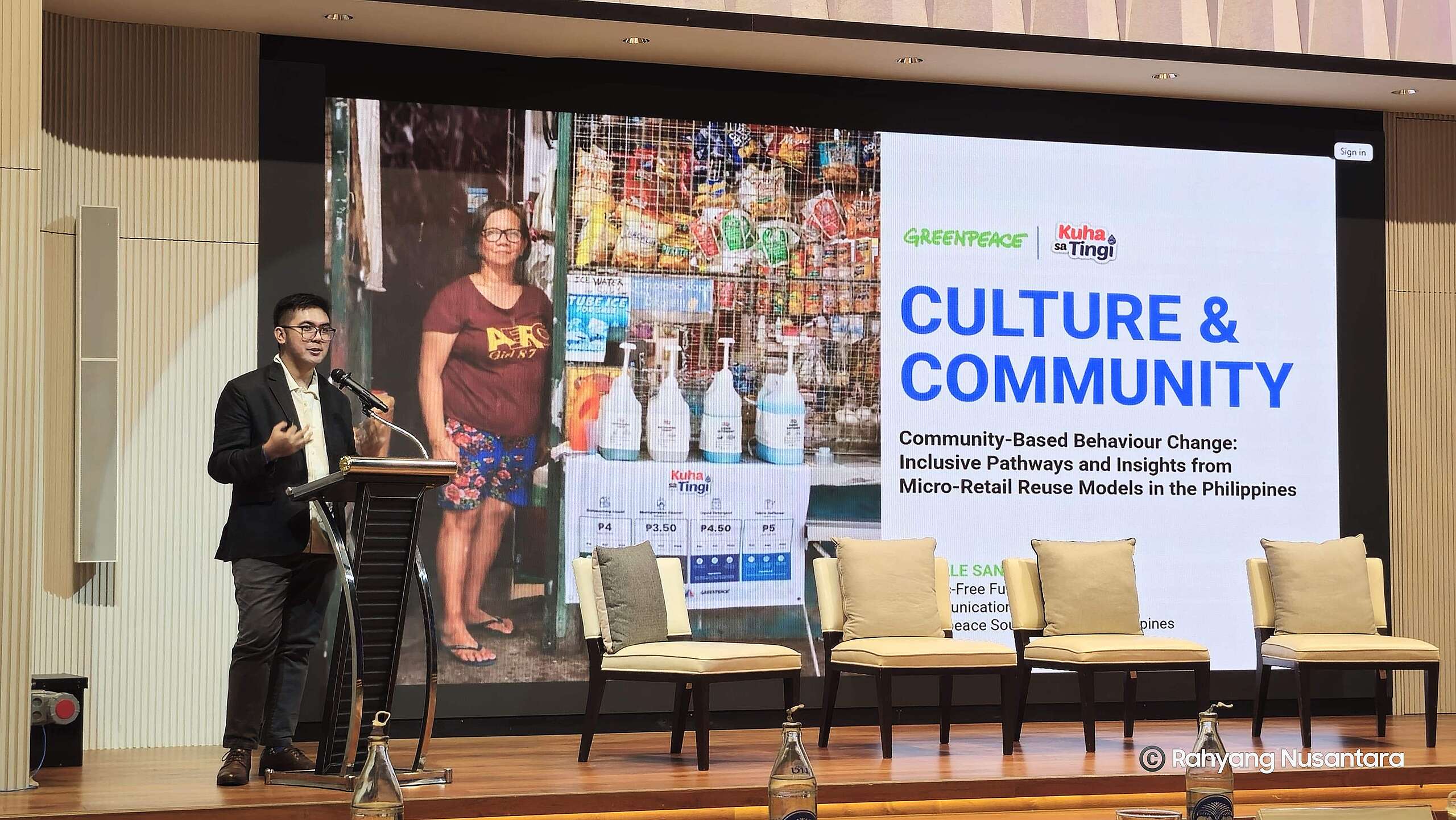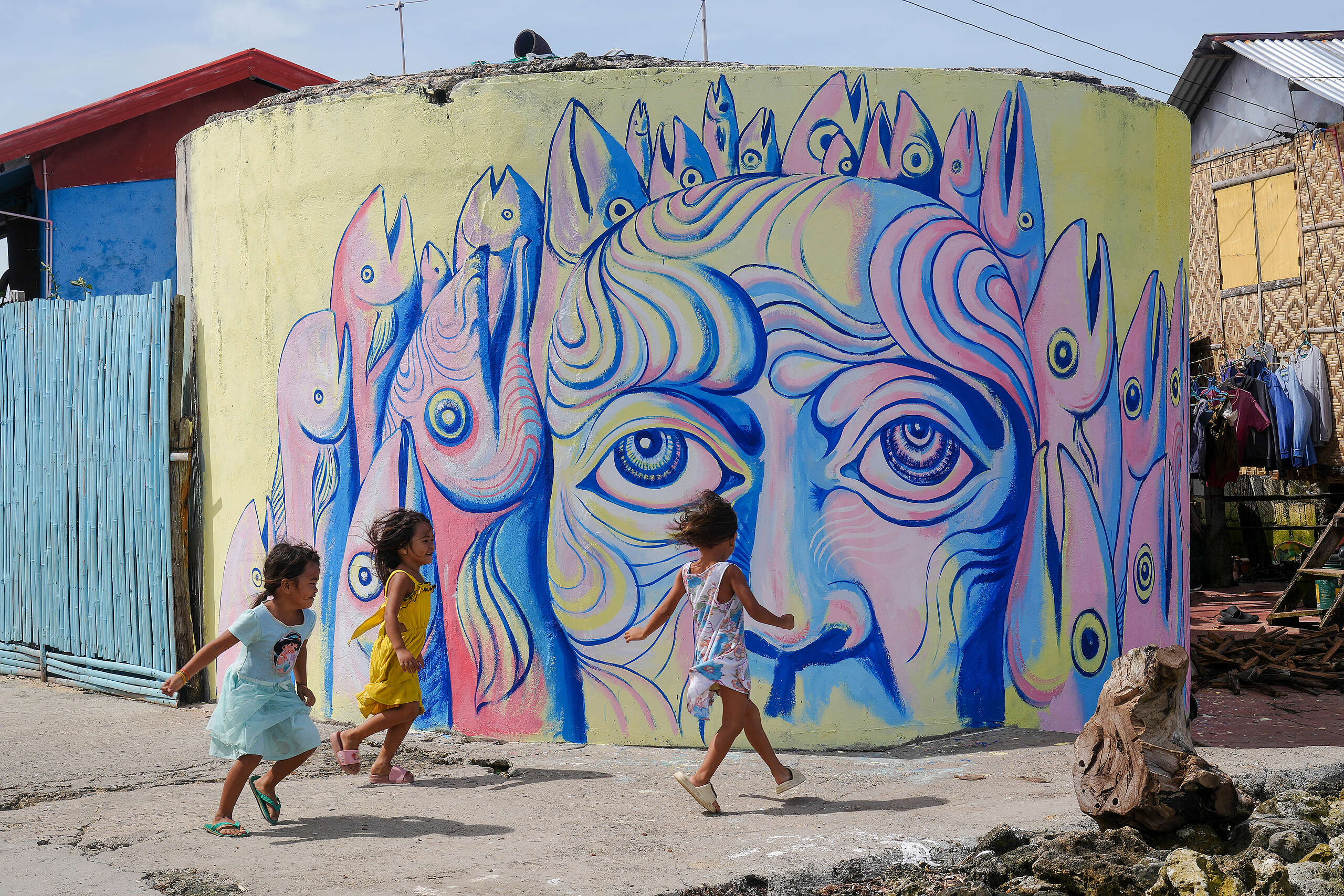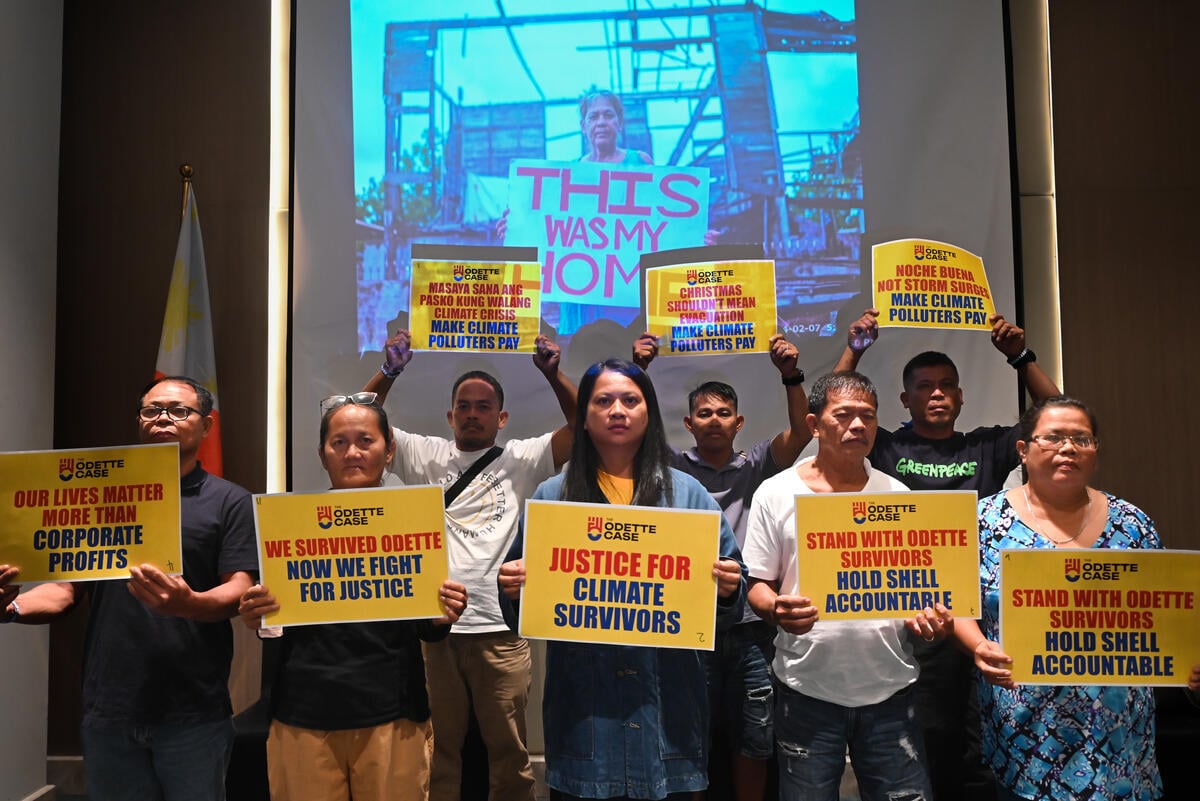QUEZON CITY, Philippines — Protected bike lanes are essential for building better, more liveable cities. This is what Greenpeace wants people to appreciate as it takes part in the “Share the Road” exercise on August 15-18, 2020.
The environmental organization joins biking advocates, supported by key government agencies, as they provide frontliners and other bikers with pop-up bike lanes along EDSA for the next four days. The group is calling on Metro Manila mayors to advance protected bike lanes as part of a comprehensive plan to put people at the center of city planning.
The “Share the Road” initiative in EDSA is the second wave of the event, which was first organized at Commonwealth Avenue by Biker’s United Marshalls (BUM). The bike lanes will be set up at six stations along the highway’s southbound side, from Aurora Boulevard to Magallanes.
Greenpeace Southeast Asia executive director Yeb Saño sees the activity as an opportunity for people to appreciate the far-reaching benefits of establishing a cycling lane network along main roads.
“Bike lanes are not just for bikes and bikers, but for everyone living and working in cities,” he said. “With the right planning, they could provide pedestrians and commuters with safer, wider room to move even at a busy road like EDSA.”
Greenpeace believes that because of urban planning that has prioritized motor vehicles running on fossil fuels, the resulting air pollution has made our cities unhealthy for ordinary citizens[1].
“Globally, cities account for 75% of global greenhouse gas emissions[2], a great part of it is from fossil fueled transport. Cities that provide more opportunities for active mobility such as biking and walking will create less need for cars,” Saño said. “This means less air pollution, and a huge opportunity for climate mitigation,”
Moreover, protected bike lanes are an important component in planning a healthier, greener design for our cities.
“Imagine Metro Manila not just with bike lanes, but with more trees, more green public spaces, and more room for everyone to breathe,” Saño said. “This is what we want to see when we ask for liveable cities, for a better normal beyond this pandemic.”
Fortunately for biking and environmental advocates, there is growing interest in the government to make permanent, safe bike lanes happen.
“We are starting with the issuance of the Joint Administrative Order that will guide the NGAs and LGUs in the implementation of active transport projects and policies, signed by the Departments of Health (DOH), Transportation (DOTr), Interior and Local Government (DILG), and Public Works and Highways (DPWH),” said Engr. Eldon Joshua Dionisio of the DOTr. The agency is a participant in the event, along with the aforementioned signatories.
He added: “Meanwhile, the Department Order on the Guidelines and Protocols on Active Transport and Light Mobility Vehicles will ensure the safe usage of our bike lanes and maintain order on the road to protect our cyclists.”
Greenpeace supports these developments, but for the sake of the people banking on a future with people-centric roads, the group hopes the government will soon produce a concrete plan for permanent bike lanes.
“The fact that we got this far is proof that collective citizen action can disrupt public discourse and influence our leaders to do right by its people,” Saño said. “Therefore, we must remain steadfast in calling for this and other solutions that will improve our quality of life—not just in Metro Manila, but in the whole country.”
Note to Editors:
Note to Editors:
[1]Last February, a Greenpeace report detailed that air pollution from fossil fuels is attributed to cause an estimated 27,000 premature deaths per year in the Philippines.
[2]UN Environment Programme, “Cities and Climate Change”
Media Contact:
Angeli Cantillana, Communications Campaigner
[email protected]
+63 998 595 9733




